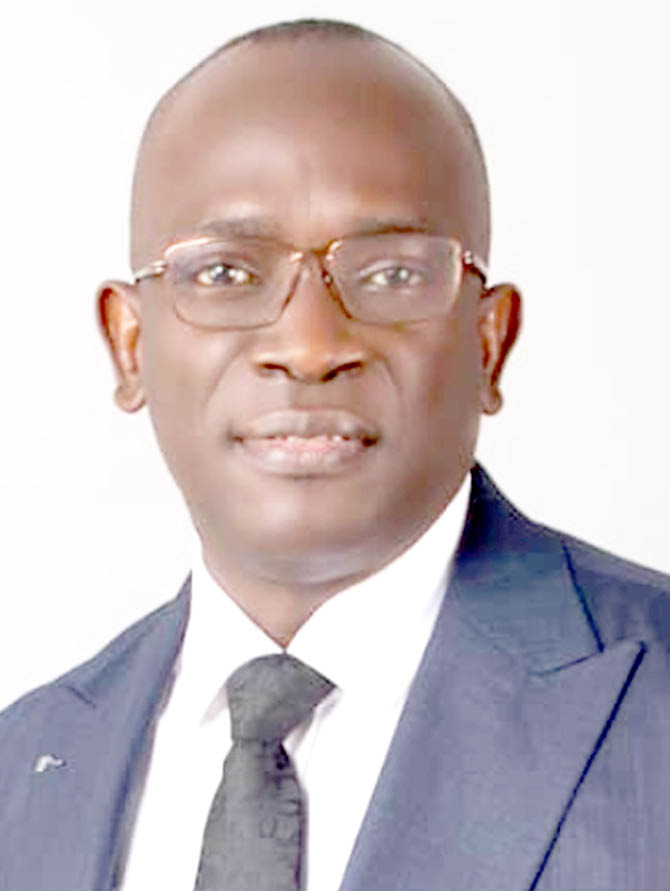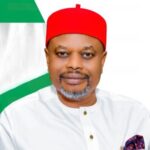In this interview, the director-general of the Nigeria Employers’ Consultative Association (NECA), Adewale-Smatt Oyerinde, spoke on the expectations of the Organised Private Sector of Nigeria for the incoming administration of the president-elect, Asiwaju Bola Ahmed Tinubu, among other issues.
Nigerians recently concluded the presidential and National Assembly elections, what are the expectations of the organised private sector from the incoming administration, especially considering the manifesto of the president-elect?
I think there are two contexts to all these issues. The first one is the issue of the desirable and the second is the issue of the reality.
I can call the manifestos desirable – what they think they want to do – but in the real sense, the reality might not be in tandem with the desirable. So from the private sector perspective, there are about four priorities, and top on that priority is the issue of the economy as it affects organised businesses. We have the issue of fiscal and monetary policies misalignment, which is basically at the root of most of the challenges we have.
- 47 years after creation, Idoma people beg for Benue gov’ship
- Old naira notes remain legal in Bayelsa till December 31 – Govt
The fiscal and monetary policies are supposed to complement each other. And the authorities manning those two very delicate policy areas are supposed to be collaborating, even when the structure or law that sets them up might give them some level of independence.
The second priority is having round pegs in round holes. It is not enough for you to know what to do, you must also get people that know what to do to do them.
We are also concerned that even as the incoming government is planning and putting his team together, round pegs should be put in round holes so that whatever action they plan to implement will be effective and efficient.
The third part of the conversation of the priorities is to deal with the issues arising with revenue generation for the economy. And the context of revenue has about three contexts. One is on the leakages we currently have; and those leakages arising from oil theft. We need to deal with it decisively. Oil theft is compromising our ability to meet the Organisation of Petroleum Exporting Countries (OPEC) quota. If you can’t meet the OPEC quota, that means you cannot maximise the revenue that ordinarily you would have taken for granted.
Fuel subsidy is also a very vexatious issue. The general consensus among stakeholders is that fuel subsidy is not sustainable. We urge the incoming government, as a matter of priority, to review what has been done within the context of the refineries we have. We have done turnaround maintenance over and over; why are they still not working? We have to fix the refineries as urgently as possible and address the issue of fuel subsidy because N5trillion on subsidy per annum is unsustainable.
Dealing with insecurity will also help to reduce the food inflation we currently have. Those are the four pillars we think the incoming government should focus on, which will have a long term consequential effect on every other sector of the economy.
As employers and key players in the economy, how should the incoming administration partner with the organised private sector?
Globally, the private sector plays a fundamental role in national development. You cannot succeed without the private sector, so we should not pay lip service to the sector. For every 10 jobs created globally, the private sector creates at least eight. If such sector is contributing massively to our gross domestic product, then it becomes very important that we give due attention to it. This is what we will encourage the incoming government to do.
We have said severally that the private sector should be deliberately involved within the context of policy formulation, implementation, review and appraisal. There are no two ways to do it. We thank God that from the manifesto we have seen, there is some level of deep private sector participation.
I also want to sound a note of warning where successive governments call their friends with big businesses together and label them the organised private sector. That is absurd. There is an institution called the Organised Private Sector of Nigeria, comprising the Nigeria Employers Consultative Association (NECA), the Manufacturers Association of Nigeria (MAN), National Association of Chambers of Commerce, Mines and Industry (NACIMA), National Association of Small and Medium Enterprises and the National Association of Small Scale Industrialists. All businesses in Nigeria belong to either or all of those organisations.
So we urge the incoming government to take a critical look and review the role of the private sector because it remains the engine of national development in any economy.
Unemployment remains one of the major issues we have in this country; how can the government partner with the private sector to create more jobs, especially for our young graduates?
We flaunt our ease of doing business efforts. Sometimes we also flaunt the outcomes, which are not real. You need to come back to the shop floor to actually assess if those efforts are translating to actual impact. Currently, the regulatory environment is hostile. You have regulators that have taken it upon themselves to become a terror to organised businesses. A business that collects loans to operate in this environment and face challenges within the context of power, energy and regulatory hostility of certain regulators will find it very difficult to survive. When a business faces such existential threats, you start looking for ways to survive.
One of the ways to survive is reducing the workforce. So the system that helped one to collect a loan also created inherent risk for one to make sure one doesn’t succeed. For the government to assist the private sector, you must deliberately insist that regulators are judged, or their performance evaluated, not by how much they bring in as revenue, but how many businesses they facilitated to succeed. How many businesses came to this country because of the activities of these regulators? How many businesses employed one more staff because of the activities of these regulators?
The National Assembly should also come up with laws that will promote enterprise competitiveness and sustainability, not laws that will rather endanger the existence of a business or programmes that will rather make a potential foreign investor to be worried whether to bring in money to the Nigerian economy?
Another problem is that our best brains are leaving. What is the impact of this on the organised private sector, and how do you think that it can be addressed?
It is a cause and effect issue. Sometimes we will continue to feed the cause while complaining of the effect.
Mobility of labour is a generally accepted principle. Labour can move freely, but when it gets to the level we find now, because if the migration is from a developed economy or a highly industrialised economy to a less developed economy, you might say there are some positives. However, when, from a developing economy the best of your brains are now migrating to developed economies, it hinders your ability to catch up with development. It hinders your ability to maximise even the productive capacity of your industries.
They leave because of economic reasons, which is legal because you cannot ask people not to leave. If their economic needs are not being met, they will leave. If there are security threats through whatever context, they will leave. It all boils down to the environment, and the government cannot claim it is not culpable in all these issues. It is not rocket science.
Government should create an environment that enables an average Nigerian that is industrious to strive. In every sector you see Nigerians making waves outside Nigeria. What exactly, or what system or structure have we put in place here that doesn’t make them excel the way they are excelling outside? Those are part of the conversations we need to have.
There are deliberate things we must do to make coming back attractive for those that have left.
You were recently appointed a member of the Governing Board of the International Labour Organisation (ILO), what advantage does it bring to the country?
First of all, we want to appreciate the global body for counting us worthy of being part of that elite group. The ILO, as you know, is the oldest United Nations agency and the only agency that has a tripartite nature – employers, workers and government – responsible for setting standards as it concerns work. We are all working elements, so whatever we are doing now boils down to work.
One of the things it will bring for us is also to give greater attention to Nigeria within the context of the kind of support we can get in capacity building, not for only the employers but also the workers.
Few days ago, the ILO supported us with capacity building for micro, small and medium scale enterprises, as well as developing the business acumen and capacity of Nigerian small scale businesses. All those opportunities will come in for us as a country.
Also, within the context of the labour law we are just reviewing, the ILO provided a high level technical partnership as support. So, it is in the context of bringing more technical support to Nigeria as a country and helping us to deepen our engagement in the conversation as it relates to decent work.

 Join Daily Trust WhatsApp Community For Quick Access To News and Happenings Around You.
Join Daily Trust WhatsApp Community For Quick Access To News and Happenings Around You.


